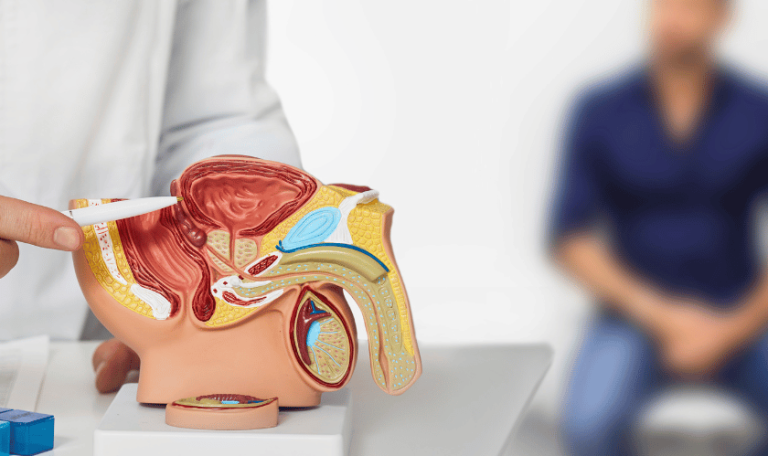5 Warning Signs of Prostate Problems

Prostate issues are common among men, especially as they age. However, many men may not recognize the early warning signs of prostate problems. Detecting these symptoms early can lead to better outcomes. Here are five warning signs you should never ignore.
1. Frequent Urination
One of the most common signs of prostate problems, particularly benign prostatic hyperplasia (BPH), is frequent urination, especially at night (nocturia). As the prostate enlarges, it can press against the urethra, causing urinary issues.
What to Watch For:
- Waking up multiple times during the night to urinate.
- Difficulty starting urination or a weak urine stream.
2. Pain or Discomfort During Urination
If you experience pain or a burning sensation while urinating, this may be a sign of prostatitis (inflammation of the prostate) or an infection. Prostatitis can also cause swelling and discomfort in the pelvic area.
What to Watch For:
- A painful or burning sensation while urinating.
- Pressure or tenderness in the pelvic region.
3. Blood in Urine or Semen
The presence of blood in the urine or semen is a serious symptom that may indicate a prostate infection, prostate cancer, or another significant issue. If you notice blood, it’s essential to seek medical attention immediately.
What to Watch For:
- Red or pinkish tint to urine or semen.
- Unexplained bleeding.
4. Erectile Dysfunction
Erectile dysfunction (ED) is common among men with prostate problems, particularly those with BPH or prostate cancer. While ED can be caused by various factors, it’s important to pay attention to any changes in sexual function.
What to Watch For:
- Difficulty achieving or maintaining an erection.
- Reduced sexual drive.
5. Pain in the Lower Back or Hips
Persistent pain in the lower back or hips can be a sign of prostate issues, particularly prostate cancer. This pain can occur when cancer spreads to nearby bones. If you experience unexplained pain in these areas, consult a doctor.
What to Watch For:
- Persistent pain in the lower back or hips that doesn’t go away with rest.
Early detection is key to managing prostate problems effectively. If you notice any of these signs, it’s crucial to consult a healthcare provider who can assess your condition and recommend the appropriate course of action.
For more information on maintaining prostate health, check out our article: How Hormones Impact Men’s Health.